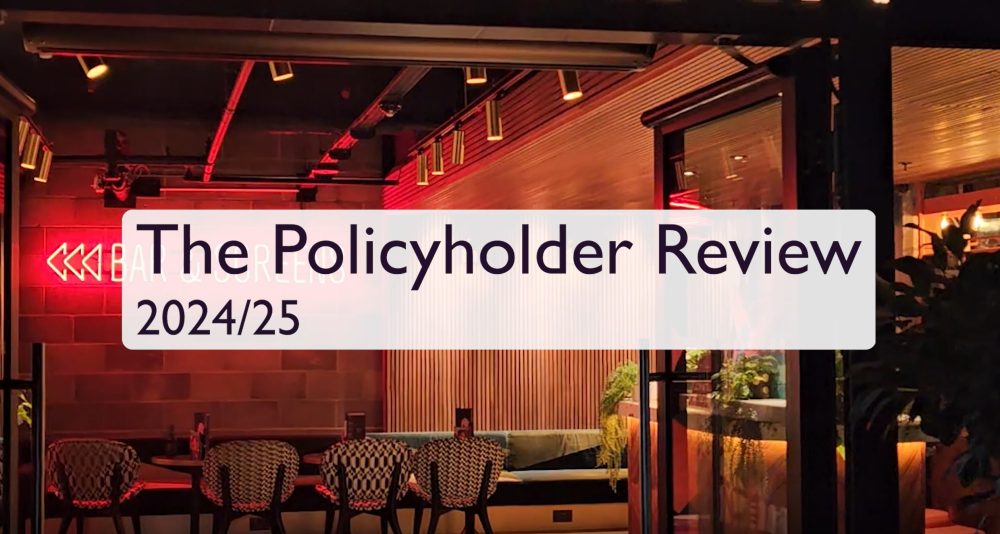The Court of Appeal has today handed down its latest significant test case judgment in relation to issues arising from the series of Covid-19 business interruption insurance disputes, including composite insurance policies and furlough funds. Stewarts partners Aaron Le Marquer and James Breese represented the lead claimant policyholder Bath Racecourse in this case.
There were two key issues on appeal in Bath Racecourse Company Ltd & Ors v (1) Liberty Mutual Insurance Europe SE (2) Allianz Insurance Plc (3) Aviva Insurance Limited:
- whether Bath’s composite policies of insurance entitle each of the insured entities to its own separate limits of indemnity or whether the limits are shared aggregate limits; and
- whether insurers are entitled to deduct from the indemnity calculation the furlough payments that Bath received from the UK Government.
In Mr Justice Jacobs’ first instance decision dated 26 January 2024, he found for the policyholders on issue 1, and insurers on issue 2. Both sides appealed.
The Court of Appeal has today dismissed all appeals. The Court has concluded that each of the insured entities in the Bath Racecourse group is entitled to its own limits of liability and that insurers are entitled to deduct furlough payments from the indemnity payable to policyholders. This short judgment has been handed down within just three weeks of the appeals concluding in January 2025.
James Breese comments:
“The Court of Appeal’s decision on the composite policy issue is an important one for corporate groups with multiple insured entities under one policy document. The reach of this decision extends far beyond Covid-19 business interruption insurance disputes.
This decision confirms that, in principle, multiple limits of indemnity will be available to the individual subsidiaries in a corporate group with composite policies of insurance. This produces a commercially rationale outcome where substantial losses have been suffered by different businesses and premises within the same group. The Court of Appeal noted that such policyholders would reasonably expect this to be case with their composite policies of insurance.
Moving forward, policyholders and their brokers will need to carefully check the wording of composite policies of insurance to ensure that they continue to provide adequate limits of indemnity for a group of insureds.
For outstanding Covid-19 business interruption insurance disputes, today’s ruling may provide some encouragement to policyholders that suffered considerable losses as a result of the pandemic and, almost five years later, are yet to receive full or any compensation from their insurer.
With limitation set to arise in or around March 2026, the window is shrinking for policyholders with dormant and/or unresolved claims to secure compensation. We hope this judgment helps further progress those outstanding claims.”

First issue: composite policies of insurance
This is a key issue that has frustrated the resolution of many Covid BI claims where there are multiple insured entities within a corporate group, all insured under a single policy document.
Policyholders argue that in such a scenario, there are separate policies of insurance each providing separate insurance to the insured entities. Therefore, the limits of indemnity in the policies are available individually to each of the insured entities. Insurers conversely argue that the limits of indemnity are available just once as an aggregate limit to be shared between the insured entities.
The Court of Appeal found against insurers as follows:
- Composite policies of insurance comprise a series of contracts of insurance insuring each policyholder separately.
- In the absence of a provision to vary the position, the policyholder would reasonably expect individual limits to be available separately to each insured business.
- A reasonable policyholder would not expect its own limits to be eroded be another’s claim. If different insured premises are owned by different insured entities in the group, as is the case in Bath Racecourse, the insureds only have interests in their own insured premises/business.
Policyholders with composite policies of insurance therefore have individual limits of indemnity available to each of the insured businesses separately, rather than multiple insureds sharing a single limit of indemnity between them.
The Court’s findings were based on the construction of the policies in question rather than any presumption. However, the practical effect of the Court of Appeal’s judgment appears to be that composite policies of insurance will provide separate limits of indemnity in this way unless there is (a) a provision in the policy wording expressly setting out that there is a shared aggregate limit, and (b) additionally a provision dealing with the priority of competing claims between insureds.
Second issue: furlough
The Court of Appeal was asked to determine whether it is correct that insurers should be entitled to deduct the sums policyholders received from the UK Government’s Coronavirus Job Retention Scheme (ie furlough payments) from any indemnity owed.
The key questions for the Court of Appeal were:
- did the policyholders’ wage costs “cease” or “reduce” within the meaning of the insurance policy by virtue of the furlough payments received, in which case they should be treated as a saving to deduct from the indemnity;
- was any cessation or reduction of the charges or expenses of the business “in consequence of” the insured peril; and
- were furlough payments a collateral benefit.
The Court of Appeal found in favour of insurers on all issues, with a clear preference for the conclusion that: “The bottom line at the end of the day is that the insureds did not have to bear the expenses of the wages bill and to that extent, the charges or expenses of the business were reduced”, which the Court determined is how the reasonable policyholder would view the position.
Next steps?
The Court of Appeal’s judgments remain subject to potential further appeals from both insurers and policyholders, the status of which are yet to be confirmed.
There could therefore be further appeals to the Supreme Court. If permission must be sought from the Supreme Court, it will be interesting to see whether it is granted following the Supreme Court’s recent decision to refuse Allianz Insurance Plc permission to appeal another Covid-19 business interruption issue, following the policyholder’s success in London International Exhibition Centre Plc v Allianz & Ors.
Find out more
You can find further information regarding our expertise, experience and team on our Policyholders Disputes page.






